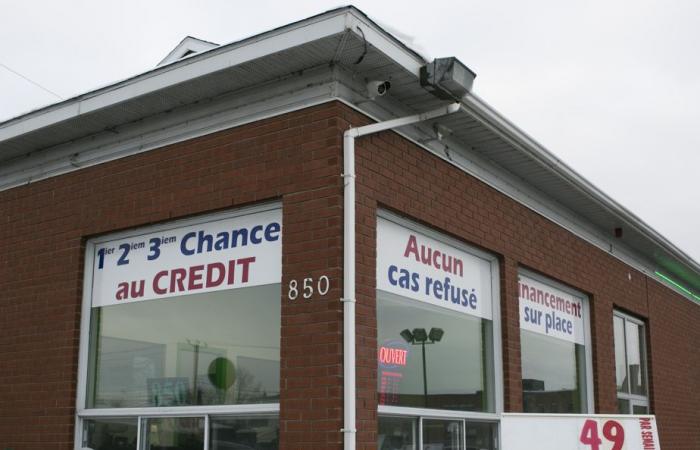Bill 72, which aims to simplify the lives of consumers and regulate certain commercial practices, was adopted unanimously last Thursday.
Published at 1:30 a.m.
Updated at 7:00 a.m.
Certain provisions of this Law protecting consumers against abusive commercial practices and providing better price and credit transparency are already in place.
Other measures, about which there was much talk when the bill was tabled last September – affecting tipping and display in grocery stores, in particular – will be in force in six months to allow merchants to adapt their practices.
“The adoption of this bill and the new measures it provides will make it possible to simplify the lives of Quebecers in their daily lives, whether at the restaurant, at the gas station, at their financial institution, at the grocery store or at the dealership,” indicated the Minister of Justice, Simon Jolin-Barrette, responsible for consumer protection.
Indeed, this law contains multiple ramifications.
Among the measures that come into force now, those which regulate the practices of certain types of itinerant commerce, a sector which is often the subject of complaints to consumer associations, points out Charles Tanguay, spokesperson for the Consumer Protection Office.
Some dishonest marketers use every possible technique to lock consumers into contracts. For heat pumps, for example, or solar panels.
Charles Tanguay, spokesperson for the Consumer Protection Office
Charles Tanguay specifies: promises of energy savings are often used to bind consumers to binding contracts. These practices affect a vulnerable, less informed population, who fall into the trap by signing contracts well beyond their real value.
It is therefore no longer possible for a seller who knocks on your door to offer you contracts for the sale or rental of heating or air conditioning equipment, as well as insulation or decontamination services.
But be careful: the concept of itinerant commerce also applies to online offers, through social networks, where you are offered to visit the house to evaluate on site the conditions of your home.
In the worst scenarios, representatives show photos of mold to the future client, when the photos were not actually taken on their roof or in their attic, relates Charles Tanguay.
As with all new provisions of the law, a consumer who witnesses an offense can file a complaint with the Consumer Protection Office.
Informed credit
The new law also provides for a tightening of credit rules – for example, a lender cannot add “enrollment and renewal” fees that were not included in the calculation of the credit rate initially in a loan option. variable credit. Concretely, when signing a contract, the customer must have the real data in hand.
“It also aims to respond to the practices of certain lenders – what we call payday lenders or the parallel loan industry, who make very expensive loans outside of regular financial institutions,” says Charles Tanguay, who specifies that these lenders have many tricks for subtracting fees from the credit rate.
“We are coming to close this door,” says Charles Tanguay, who adds that it is also the end for endorsement fees.
Credit is also under surveillance among automobile dealers. The new law calls for more transparency when refinancing, so that vehicle owners make their decisions with full knowledge of the facts. And retailers can no longer charge fees, other than the residual value, when buying back a vehicle at the end of a lease.
Three measures entering into force on May 7, 2025
At the grocery store
Are you a member of the loyalty program? No ? So you won’t pay the wholesale sticker price for your chicken noodle soup. Are you only buying a carton of juice? Unfortunately, you are clearly told how much you have to pay for three containers. These practices will no longer be possible. The retailer must clearly indicate whether the product is taxable, what its unit price is and what its price is for “non-members”.
At the restaurant
We will now need to present you with your bill before taxes so that you can calculate the tip you wish to add to the value of the meal. We also ask that tipping options be presented “in a neutral and uniform manner”. The customer must also be able to choose to add a fixed amount, easily.
At the store
If you choose a product and the price you are asked at checkout is not the price displayed in store, the retailer must respect the price accuracy policy. Currently, you won’t pay for your purchase if the product is worth $10 or less – and you’ll get a $10 discount for any product of higher value. The new law raises the threshold to $15.






